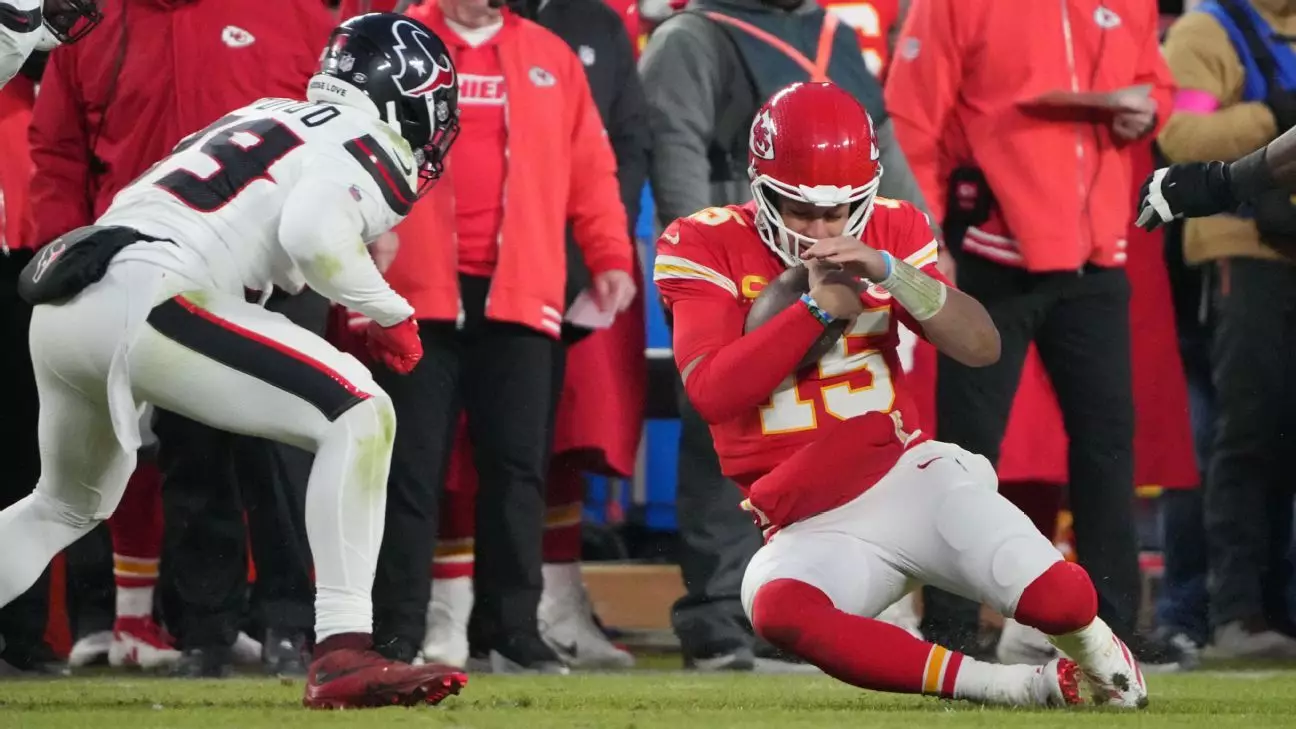The ongoing evolution of the NFL’s officiating system has brought forth heated debates, particularly surrounding player protection and fairness in the game. Patrick Mahomes, quarterback for the Kansas City Chiefs, has often been at the center of these discussions, with critics arguing that he benefits from an excessive number of protective calls. As the league prepares for potential changes in replay assist protocols, it’s essential to dissect both the implications of such moves and their impact on the game.
Introduced in 2021, the NFL’s replay assist mechanism was designed to foster accuracy in officiating by enabling designated replay officials to intervene and correct clear and obvious mistakes. This system primarily addresses significant game situations, including issues like ball spot accuracy and penalty interpretations. As of 2024, the capability of replay officials is projected to broaden, which may allow them to weigh in on additional aspects of the game, particularly those involving quarterback protections.
The theoretical extension of replay assists to include quarterback slides and hits targeting quarterbacks indicates the league’s acknowledgment of the growing importance of player safety. Given the physical nature of football and the intense scrutiny surrounding quarterback treatment, expanding replay assist’s purview could enhance the overall fairness and integrity of officiating.
The Role of Quarterback Protection in the NFL
Quarterback protection has been a contentious issue for years. When Mahomes recently drew a penalty for unnecessary roughness during a playoff game despite being a runner, it sparked lively discussion among analysts and fans alike. Prominent commentator Troy Aikman openly criticized the call, stating that it blurred the lines between being a protected passer and an active runner. This highlights a broader concern: the divergent expectations surrounding quarterbacks and how those expectations translate into officiating decisions.
The league’s incumbent challenge is balancing the need for player protection while still allowing for a dynamic and competitive game. Critics argue that excessive protections can lead to a lack of accountability among quarterbacks, who might play recklessly knowing they have a safety net of penalities. As such, adjustments to replay assist could recalibrate the scale, fostering a more balanced game approach.
The discussions slated for the competition committee meetings could lead to significant changes in how games are officiated. Expanding replay assist to include quarterback slides and penalties associated with hits aimed at quarterbacks could create uniformity in the enforcement of the rules. A smooth application of added measures would reinforce the idea that the league is committed to protecting its marquee players while still upholding competitive integrity.
Moreover, granting additional synthetic objectivity to crucial moments on the field could assuage some player concerns regarding bias. For instance, comments from players like Texans star Will Anderson Jr., who acknowledged entering games with the expectation of confronting both the opposition and the officials, illuminate the lingering skepticism players hold towards officiating decisions. Transparency in penalties could foster trust, or at least, a greater understanding among players.
Player Perspectives and the Road Ahead
Mahomes’ defense of the officiating crew indicates a desire for mutual respect between players and referees. He stated that referees aim to maintain fairness, a perspective that could serve as a bridge in discussions about potential rule changes. By reinforcing open dialogues like these and focusing on collaborative solutions, the NFL can ensure that all stakeholders feel heard, minimizing resentment surrounding officiating.
As the competition committee gears up for its discussions in Palm Beach, the outcome could usher in a new era for the NFL. The expansion of replay assist stands as a potential turning point in addressing long-standing debates on fairness, player safety, and officiating accountability. A reimagined system equipped with clear guidelines could pave the way for improved gameplay experiences for everyone involved – players, officials, and fans alike.
The convergence of player safety and officiating standards is at a critical juncture as the NFL seeks to enhance replay assists. As conversations unfold regarding the redefinition of rules that govern quarterback treatment, the league has an opportunity to clarify any existing ambiguities. The decisions made in the coming months will significantly influence how the game is perceived and played, marking a pivotal moment for America’s most beloved sport. Ultimately, fostering transparency and fairness will only strengthen the foundation of the NFL for future generations.


Leave a Reply